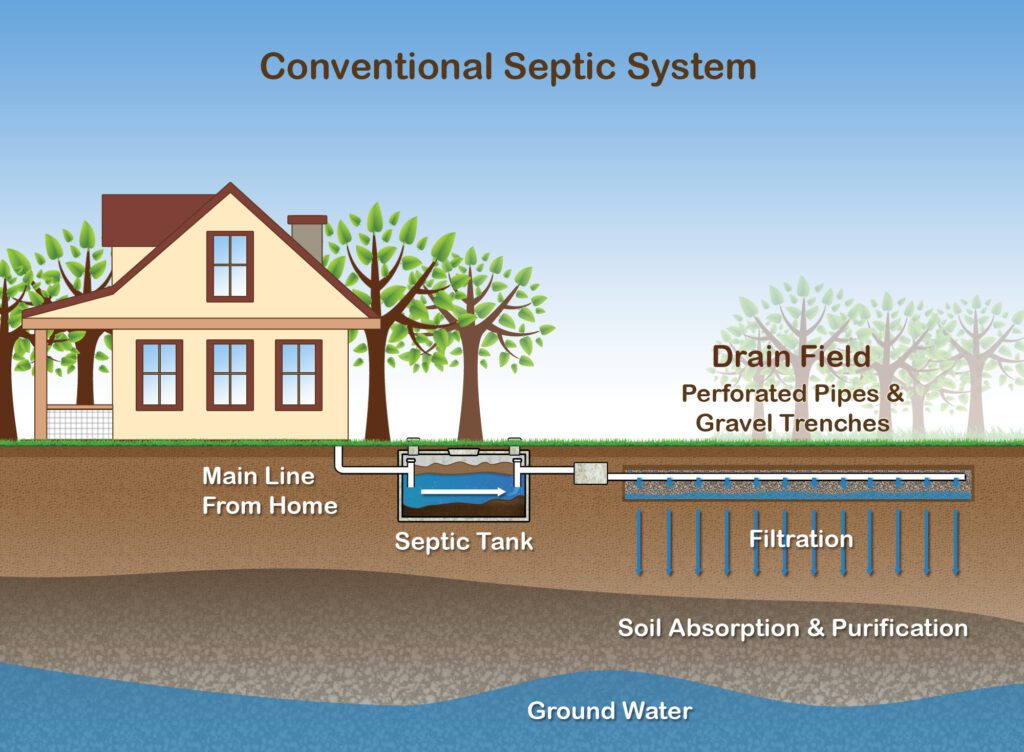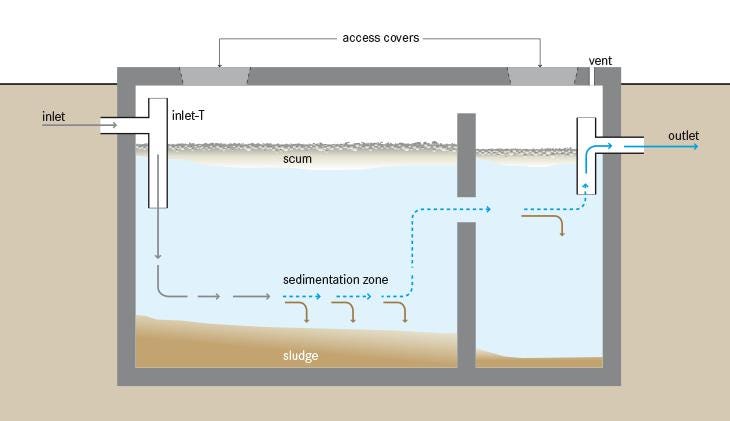Hello there! In this article, we will discuss an important topic – how often your septic tank should be cleaned out. Proper waste disposal is crucial for maintaining a healthy and efficient septic system. Join us as we explore the factors that determine the frequency of septic tank cleaning and the importance of regular maintenance. By the end, you’ll have a better understanding of how to ensure proper waste disposal and extend the lifespan of your septic system. So, let’s get started!
Septic Tank Cleaning Frequency
Keeping your septic tank clean is crucial for effective waste disposal and maintaining the overall functionality of your septic system. Regular septic tank cleaning helps prevent backups, clogs, and potential environmental hazards. However, many homeowners are unsure about how often their septic tanks should be cleaned out. In this article, we will discuss the factors affecting the cleaning frequency, the recommended cleaning frequency, the consequences of infrequent cleaning, and the importance of regular septic tank cleaning.
Factors Affecting the Cleaning Frequency
The frequency at which you should clean your septic tank depends on various factors. These factors include the number of people in your household, the size of your septic tank, and your water usage. Typically, a septic tank should be cleaned every three to five years. However, certain situations may require more frequent cleaning.
If you have a larger household with more people, you might need to clean your septic tank more frequently. Additionally, if your septic tank is smaller, it might require more frequent cleaning as it will fill up faster. Lastly, excessive water usage, such as running a bed and breakfast or doing laundry for a large family, can also increase the frequency of septic tank cleaning.
Recommended Cleaning Frequency
To ensure proper waste disposal and avoid any septic system issues, it is recommended to clean your septic tank every three to five years. Regular cleaning helps remove accumulated sludge and scum in the tank, preventing backups and system failures. However, it’s important to note that the recommended cleaning frequency may vary depending on your specific circumstances.
If you are unsure about the ideal cleaning frequency for your septic tank, it is best to consult a professional septic system service provider. They can assess your system and provide you with personalized recommendations based on factors such as tank size, household size, and water usage.
Consequences of Infrequent Cleaning
Neglecting regular septic tank cleaning can have severe consequences for your septic system, your health, and the environment. When a septic tank is not cleaned frequently enough, the accumulated sludge and scum can clog the system, leading to backups and costly repairs.
One of the major risks of infrequent cleaning is the potential for system failure. When the tank becomes overloaded with waste, it can no longer effectively separate solids from liquids. This can result in the overflow of sewage into your yard, creating a foul odor, damp areas, and even sewage pooling on the surface. Not only is this unpleasant, but it also poses a significant health hazard.
Furthermore, the environmental impact of neglecting septic tank cleaning cannot be understated. When wastewater is not properly treated and disposed of, it can contaminate the groundwater and nearby water bodies. This contamination can harm aquatic life, affect the quality of drinking water, and have long-term consequences for the environment.
Signs That Your Septic Tank Needs Cleaning
While the recommended cleaning frequency is every three to five years, it’s essential to be aware of the signs that indicate your septic tank may need cleaning sooner. Ignoring these signs can lead to more significant problems in your septic system. Here are some common indicators that your septic tank requires cleaning:
Foul Odor
If you notice a strong, sewage-like odor around your property, especially around the septic tank area, it is likely that your tank needs cleaning. The buildup of sludge and scum produces an unpleasant smell that can permeate the air around your home. If the smell persists even after trying other remedies, it’s time to schedule a septic tank cleaning.
Slow Draining Sinks or Toilets
Another sign that your septic tank needs cleaning is slow draining sinks, tubs, or toilets. When the tank is full, it hinders the proper flow of wastewater. As a result, you may experience slow drainage or even backups in your plumbing fixtures. If you notice this problem in multiple areas of your home, it’s a clear indication that your septic tank needs attention.
Pooling Water or Damp Areas in the Yard
If you notice damp areas or pooling water in your yard, especially near the septic tank or drain field, it could be a sign of a full septic tank. When the tank reaches its capacity, it can no longer hold the wastewater properly. The excess wastewater may leak into the yard, creating these damp areas. If you observe any standing water or soggy patches around your property, it’s time to consider septic tank cleaning.
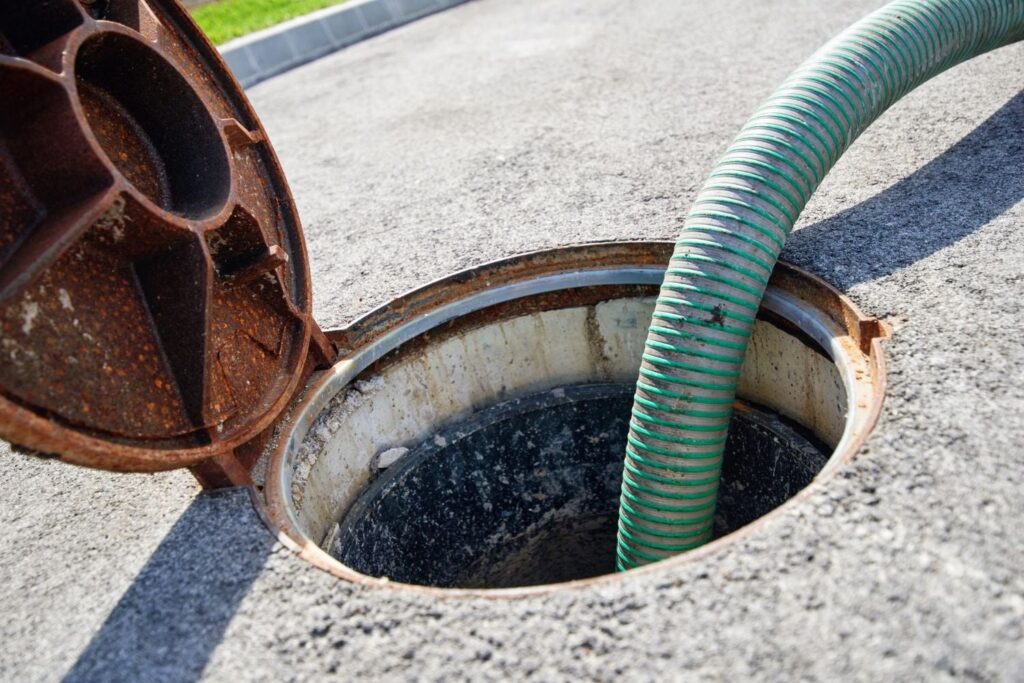
Importance of Regular Septic Tank Cleaning
Regular septic tank cleaning offers numerous benefits for both your septic system and the environment. Let’s look at some of the key reasons why regular cleaning is essential.
Prevention of Backups and Clogs
By cleaning your septic tank regularly, you remove the buildup of sludge and scum that can cause clogs and backups in your plumbing system. When the tank is not cleaned, these solids can accumulate and block the pipes and drain field, leading to sewage backups in your home. Regular cleaning reduces the risk of experiencing these unpleasant and costly issues.
Enhanced System Functionality
A clean septic tank allows your system to function more efficiently. When the tank is free from excessive solids, it can properly separate liquids from solids, allowing for effective wastewater treatment. This ensures that only treated water is released into the drain field or infiltrated into the soil. Improved functionality reduces the risk of system failures and increases the lifespan of your septic system.
Protection of Groundwater and Environment
Proper waste disposal is crucial for protecting the groundwater and nearby water bodies. When your septic tank is regularly cleaned and maintained, it reduces the chances of untreated wastewater seeping into the soil and contaminating the groundwater. This helps preserve the quality of drinking water and keeps the environment free from harmful pollutants. Regular septic tank cleaning plays a vital role in ensuring a healthy and thriving ecosystem.
Benefits of Professional Septic Tank Cleaning
While some homeowners may attempt to clean their septic tanks themselves, hiring professional septic tank cleaning services offers several advantages. Here are some of the benefits of entrusting your septic tank cleaning to professionals.
Advanced Equipment and Techniques
Professional septic tank cleaning companies have access to advanced equipment and techniques that ensure a thorough and efficient cleaning process. They use high-powered vacuum trucks and specialized tools to pump out the accumulated sludge and scum from your tank. These professionals are trained to handle septic system maintenance and have the expertise to identify any potential issues during the cleaning process.
Thorough Inspection and Maintenance
In addition to cleaning your septic tank, professional service providers also conduct a thorough inspection of your entire septic system. This allows them to identify any existing or potential problems that might affect the functionality of your system. By detecting issues early on, professionals can recommend the necessary repairs or maintenance, saving you from costly repairs down the line.
Compliance with Regulations
Different regions have specific regulations regarding septic tank maintenance and cleaning. Professional septic tank cleaning companies are well-versed in these regulations and ensure compliance during the cleaning process. By hiring professionals, you can have peace of mind knowing that your septic system is being maintained according to the local requirements.
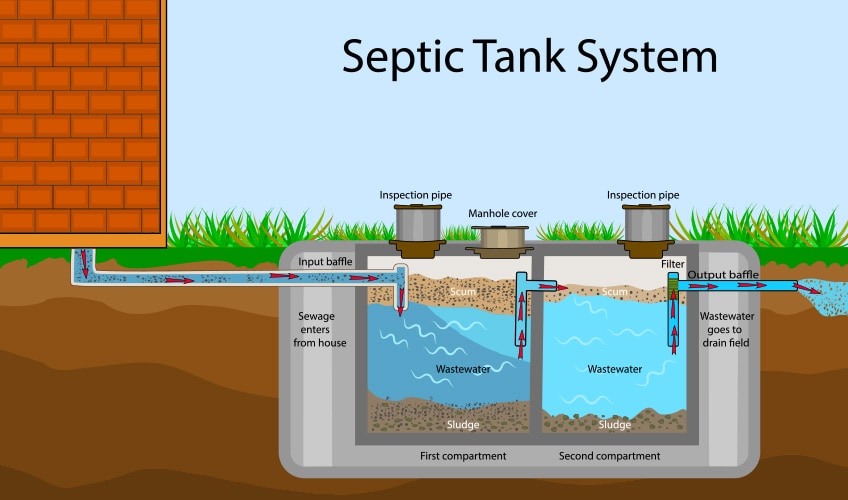
DIY Septic Tank Cleaning Methods
While professional septic tank cleaning is recommended for a thorough and efficient cleaning process, there are some steps you can take to maintain your septic system between cleanings. Here are some DIY septic tank cleaning methods:
Proper Disposal of Household Waste
Being mindful of what goes down your drains and toilets can significantly reduce the buildup of solids in your septic tank. Avoid flushing non-biodegradable items such as wipes, cigarette butts, or sanitary products, as they can clog your system. Additionally, do not pour cooking oils or grease down the drain, as they can solidify and cause blockages.
Regular Inspection and Pumping
Regularly inspecting your septic system can help you identify any potential issues before they become major problems. Look out for signs of leaks, damp areas, or unpleasant odors. Additionally, schedule regular septic tank pumping to remove accumulated solids. While this can be done by professionals, you can also use DIY septic tank pumping kits available in the market.
Avoiding Harsh Chemicals
Harsh chemicals, such as bleach or drain cleaners, can disrupt the normal balance of bacteria in your septic tank, hindering its ability to break down waste efficiently. Opt for septic-safe cleaning products and avoid excessive use of chemicals. Natural alternatives such as vinegar and baking soda can be effective for cleaning without harming your septic system.
Septic Tank Cleaning Costs
The cost of septic tank cleaning can vary based on several factors. Here are some factors that influence the cost:
Factors Influencing the Cost
- Size of the septic tank: Larger tanks require more time and resources to clean, resulting in a higher cost.
- Accessibility: If your septic tank is difficult to access or is located far from the road, it may require additional labor or equipment, increasing the overall cost.
- Geographic location: Prices can vary depending on the local market and availability of septic tank cleaning services.
Average Cost Range
The average cost of septic tank cleaning can range from $200 to $400. However, keep in mind that this is just an estimate, and the actual cost may vary based on the factors mentioned above. It is advisable to obtain quotes from multiple septic tank cleaning companies to ensure you are getting a fair price.
Importance of Obtaining Multiple Quotes
Obtaining multiple quotes is essential to compare prices and services offered by different septic tank cleaning companies. While cost is an important consideration, it should not be the sole factor in your decision-making process. Look for companies with a good reputation, positive customer reviews, and a strong track record of providing quality service. Prioritize quality and reliability when choosing a septic tank cleaning company.
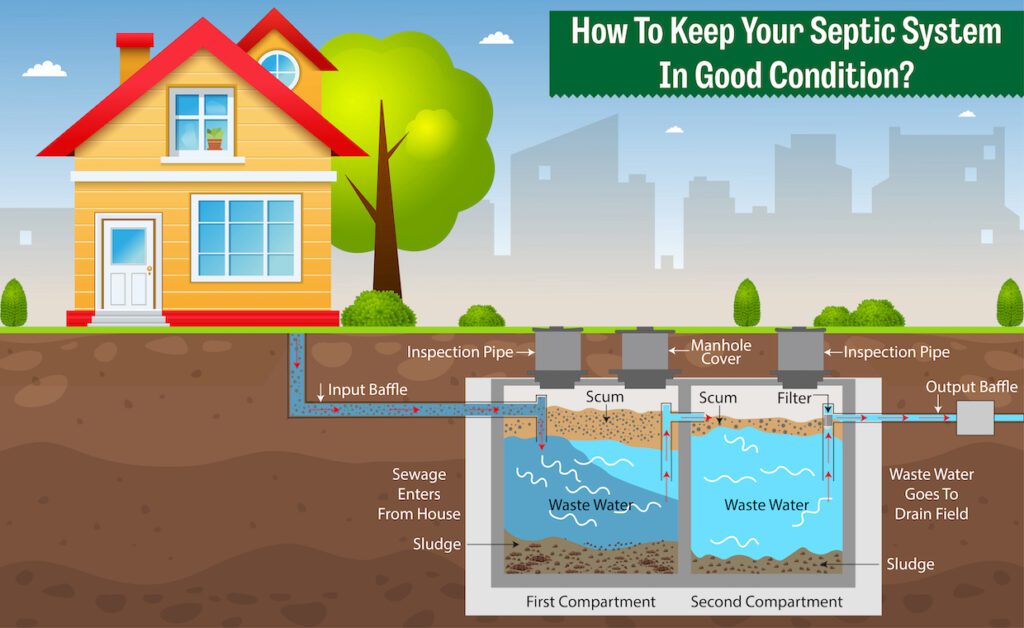
Risks of Neglecting Septic Tank Cleaning
Neglecting regular septic tank cleaning can have severe consequences for both your septic system and your health. Here are some risks associated with neglecting septic tank cleaning:
System Failure and Expensive Repairs
When a septic tank is not cleaned regularly, the buildup of solids can lead to clogs, backups, and eventually system failure. Repairing or replacing a failed septic system can be costly, ranging from a few thousand dollars to tens of thousands of dollars, depending on the extent of the damage. Regular cleaning is a small investment compared to the potential financial burden of system failure.
Health Hazards and Contamination
A neglected septic tank can pose serious health hazards. Sewage backups can bring harmful bacteria, viruses, and parasites into your home, exposing you and your family to potential illnesses. Moreover, the contamination of groundwater and surrounding water bodies can affect the local ecosystem and harm aquatic life. Regular septic tank cleaning is essential for protecting your health and the environment.
Legal Implications
In many areas, there are regulations in place that require homeowners to properly maintain their septic systems. Neglecting septic tank cleaning can lead to violations and potential legal consequences. Fines and penalties may be imposed if your septic system is found to be in violation of local regulations. By regularly cleaning your septic tank, you can ensure compliance with the law and avoid unnecessary legal issues.
Additional Maintenance Tips for Septic Systems
In addition to regular septic tank cleaning, there are some additional maintenance tips that can help you keep your septic system running smoothly:
Proper Water Usage and Conservation
Excessive water usage can overload your septic system and lead to more frequent cleanings. Be mindful of your water consumption and consider adopting water-saving practices such as fixing leaky faucets, using efficient appliances, and conserving water whenever possible. This will help reduce the strain on your septic system and prolong the time between cleanings.
Avoiding or Minimizing Disposal of Non-Biodegradable Items
Non-biodegradable items such as wipes, tampons, diapers, and dental floss should not be flushed down the toilet or washed down the drain. These items can clog your septic system and cause backups. Dispose of them properly in the trash to maintain the health and functionality of your septic system.
Regular Inspection of Drain Fields
Inspecting your drain fields regularly can help you identify any issues that may require attention. Look for signs of standing water, foul odors, or greener grass in the drain field area, as these can indicate problems with your septic system. Early detection can prevent further damage and costly repairs.
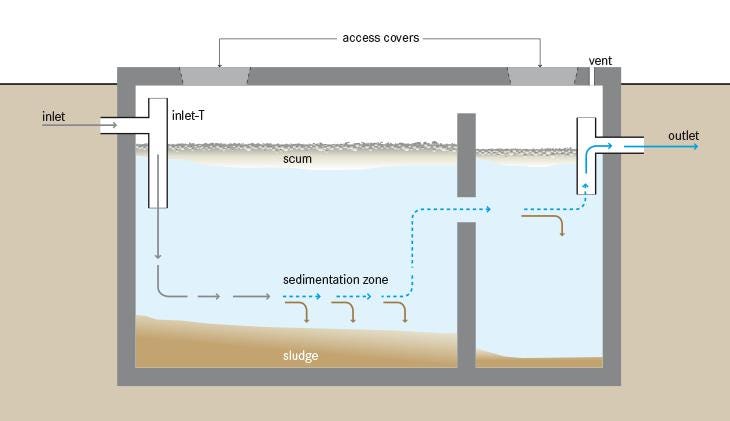
Myths About Septic Tank Cleaning
There are several myths and misconceptions surrounding septic tank cleaning. Let’s debunk some of the most common ones:
Adding Additives is Sufficient for Maintenance
Contrary to popular belief, adding additives or chemicals to your septic tank is not enough to maintain its proper functioning. Some products claim to boost bacterial activity or break down solids, but these are largely unnecessary. A well-designed septic system with regular cleaning and maintenance doesn’t require any additives.
Cleaning the Tank is Unnecessary if It’s Not Causing Issues
Even if your septic system appears to be functioning properly without any noticeable problems, regular tank cleaning is still necessary. The accumulation of sludge and scum cannot be avoided, and regular pump-outs are essential to maintain the long-term functionality of your septic system.
Septic Tank Pumping Damages the System
Another common myth is that pumping the septic tank can harm the system. On the contrary, regular pumping is necessary to remove accumulated solids and prevent system failures. With proper techniques and equipment, septic tank pumping is a routine maintenance procedure that does not damage the system when performed by professionals.
Conclusion
Regular septic tank cleaning is crucial for maintaining a healthy and functional septic system. By following the recommended cleaning frequency, you can ensure proper waste disposal, prevent backups and clogs, and protect the environment. While professional septic tank cleaning offers numerous benefits, it is also important to practice DIY maintenance methods, such as proper waste disposal and regular inspections.
Remember that neglecting septic tank cleaning can lead to system failures, health hazards, and potential legal issues. By prioritizing regular cleaning and proper maintenance, you can enjoy a well-functioning septic system and contribute to the overall protection of groundwater and the environment. Consult professionals for expert advice and assistance to ensure your septic tank remains in optimal condition. Your efforts in maintaining your septic system will go a long way in ensuring proper waste disposal and a healthier living environment.
